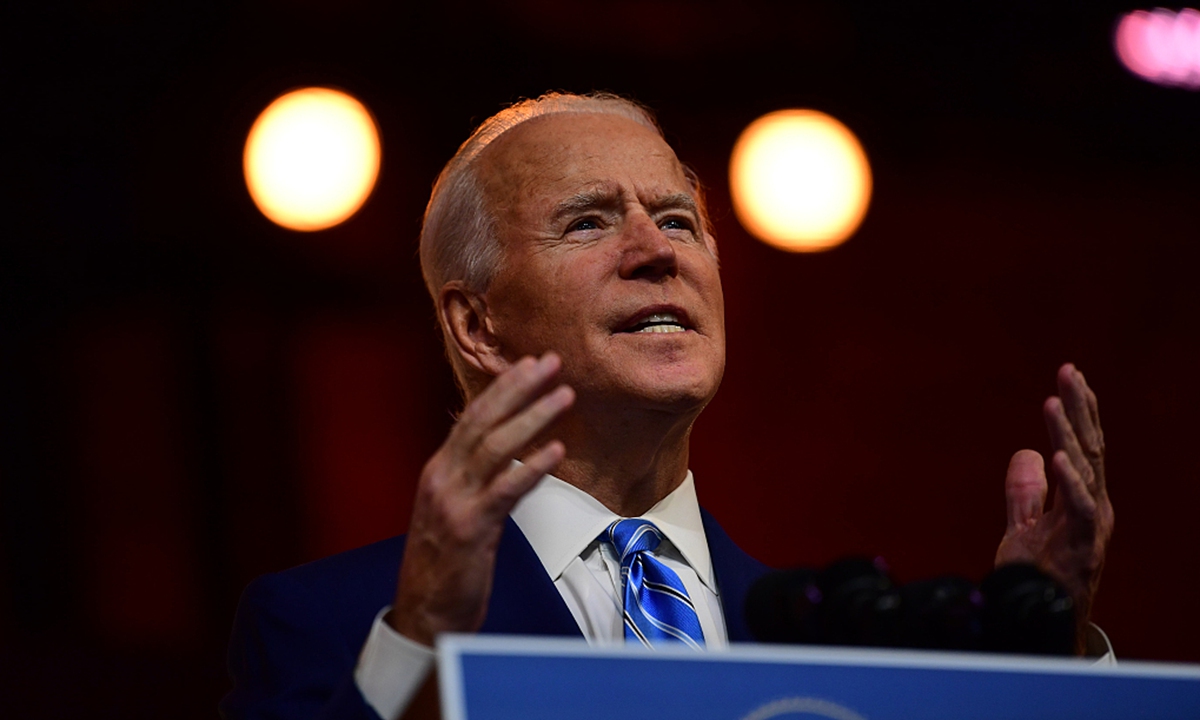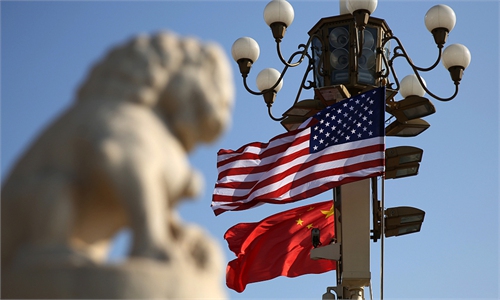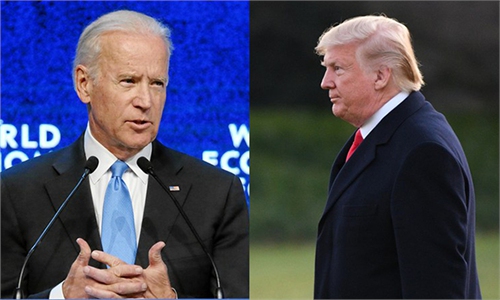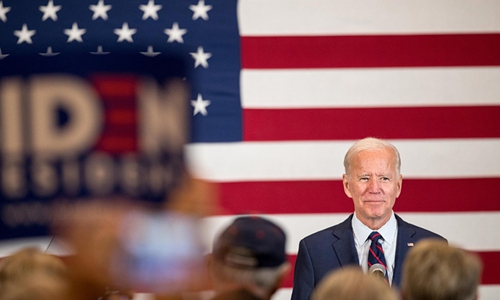
Joe Biden. Photo: VCG
As global attention turns to the Biden team's future China policy, Jake Sullivan, US president-elect Joe Biden's national security advisor nominee, briefly mentioned China when talking about beating the coronavirus pandemic in a Friday interview with Politico.He said the way to ensure the pandemic does not happen again is "by sending a very clear message to China that the United States and the rest of the world will not accept a circumstance in which we do not have an effective public health surveillance system, with an international dimension, in China and across the world going forward."
We note that neither Biden nor his key team members have spoken explicitly about the US' future China policy. Sullivan was vague and tentative in his comments on Friday. It seems the Biden team recognizes that how to deal with China is a major issue for the US when they face a sensitive choice between continuing to be held hostage to "Trumpism" and breaking away from the destructive policy inertia of the previous administration.
The US and Western media generally took Sullivan's statement as a sign that the Biden administration would pursue a tough policy toward China, reflected by what the opinion groups are predicting about the Biden administration's diplomatic orientation.
But Sullivan is also believed to have the intent to break with the traditional definition of US national security. He noted that the "major focus" of the Biden National Security Council (NSC)'s work, at least initially, will be on beating the pandemic and restructuring the NSC to make public health a permanent national security priority, according to Politico. He also emphasized the dangers of climate change. Such a shift in focus would clearly be far more objective than the Trump administration's national security priorities.
In fact, few Chinese expect that the Biden administration will become strategically "moderate" toward China. Most believe the anti-China bias among US elites is so entrenched that it will shape Washington's China policy in the long run, which means the future of US-China relations is likely to be gloomy.
However, China-US relations go beyond the simple friend-foe identification. It involves a range of issues that can be solved only through interactions. Trump's failure to control the epidemic determined his election loss. Biden must contain the coronavirus to fulfill his election promises, and ensure the Democratic Party wins the midterms, thereby laying the foundations for victory in four years. To control the pandemic, vaccines alone are not enough. Cooperation between the US and the WHO and major powers, including China, is key.
The US attitude toward China will be shaped by two factors: the growing strategic hostility toward China based on the collective weakness of human nature and geopolitical thinking; and the US practical need to cooperate with China to safeguard its own interests. Trump's foreign and national security team has constantly promoted and indulged in the first, regardless of the importance and legitimacy of the second. We hope the Biden team will at least be realistic and pursue a responsible balance.
How COVID-19 started is, above all, a matter of science and the study of it should never be politicized. The unexpected outbreak in China's Wuhan did reveal the loopholes in the city's governance, but the city's lockdown sounded a deafening alarm to the entire world. The much more serious situations seen later in the US and Europe indicated they have bigger loopholes in their public health governance. It goes against common sense to turn the spotlight to Wuhan and accuse China now.
Trump's labeling the coronavirus as the "China virus" and asking China to take responsibility for the pandemic is a political calculation aimed at absolving himself from the ineffective response to the epidemic. We hope the Biden administration will get rid of the "Trump trap" of "China responsibility theory" and face up to the real reason for its worsened epidemic situation. This is the basis for the US future victory in fighting the virus.
China is perceived by some Americans as a "strategic adversary." But China is a needed partner for the US to address pressing problems. Let the practical needs of the two countries, not ideology, determine the trajectory of China-US relations. This should be the simplest and most executable option.



